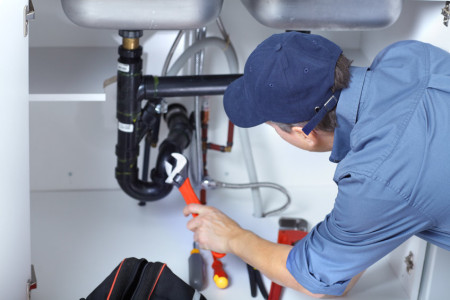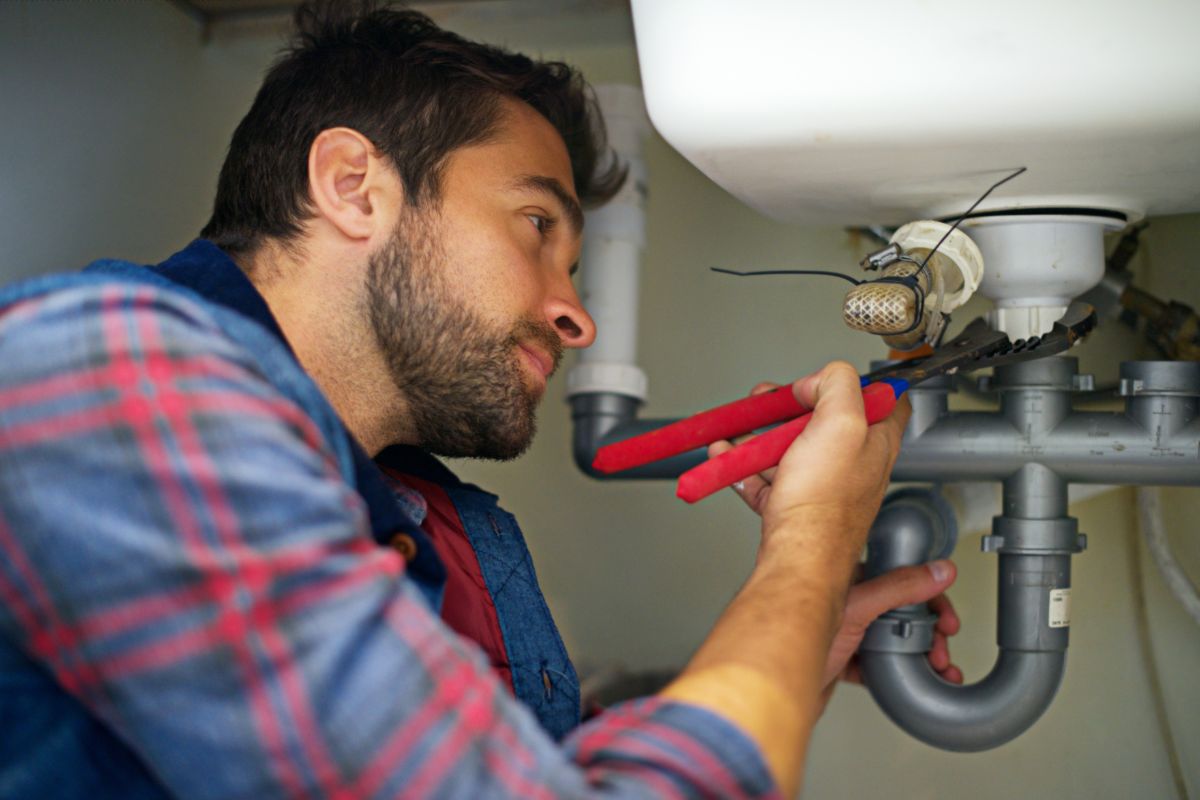Emergency Plumbing Fixes: What to Do Until Assistance Arrives
Emergency Plumbing Fixes: What to Do Until Assistance Arrives
Blog Article
What're your ideas regarding Expert Tips for Emergency Plumbing Repairs?

Pipes emergency situations can strike at any time, triggering anxiety and possible damage to your home. Whether it's a burst pipeline, a clogged up drainpipe, or a leaky faucet, understanding just how to take care of the situation until an expert plumbing professional gets here can save you from further problems. This article offers vital emergency situation pipes pointers to aid you mitigate damage and restore control during a plumbing dilemma.
Turn Off the Supply Of Water
The very first step in any plumbing emergency is to shut down the water. For localized problems, such as a dripping tap or commode, turn off the valve near the fixture. When it comes to a significant leakage or ruptured pipe, locate your home's primary water shut-off shutoff and transform it off quickly. Knowing the location of these valves in advance can conserve useful time during an emergency.
Turn off Your Hot Water Heater
In particular emergency situations, such as a ruptured pipeline, it's wise to shut off your water heater. This avoids overheating or damage to the unit when water stops streaming. Shut off the power supply to the water heater (electric or gas) and let it cool off to prevent prospective risks.
Briefly Stop a Burst Pipe
A burst pipe can lead to significant water damage in minutes. To mitigate the concern:
Call a specialist plumbing technician right away to deal with the problem permanently.
Have an Emergency Situation Pipes Set
Prepare a basic plumbing emergency situation package to deal with minor issues efficiently. Your kit needs to consist of:
Having these tools on hand can make a substantial distinction in your ability to take care of emergency situations.
Unclog Drains Securely.
A stopped up drain can be a frustrating and unpleasant issue. Right here's how to tackle it:.
If these methods don't function, prevent making use of excessive pressure, as it may aggravate the blockage.
Handle Overflowing Toilets.
An overruning bathroom can create immediate turmoil. Here's what you ought to do:.
Address Little Leakages with Momentary Solutions.
Tiny leakages can promptly come to be substantial troubles if left uncontrolled. Make use of these short-lived solutions till specialist aid gets here:.
While these repairs aren't permanent, they can help minimize water loss and damages.
Manage Frozen Water Lines Thoroughly.
In colder climates, icy pipelines are a typical emergency. If you suspect an icy pipeline:.
Know When to Call a Specialist.
While quick fixes can assist briefly, certain plumbing concerns call for instant professional attention. Call a plumber if:.
Without delay getting in touch with a professional makes certain the problem is dealt with appropriately and stops further difficulties.
Stop Further Damages.
Taking quick activity to lessen damage can conserve you time and money in the future. Right here's just how:.
Conclusion.
Plumbing emergency situations can be overwhelming, yet with the best expertise and tools, you can handle the situation successfully until assistance gets here. By turning off the water system, addressing little leakages, and utilizing short-lived fixes, you can lessen damages and keep your home safe. Keep in mind, these pointers are short-term options; always consult a qualified plumbing to manage the root cause of the problem. Prep work and fast thinking are your best allies in any type of pipes emergency situation.
8 Helpful Tips for Managing Plumbing Emergencies at Home
If your plumbing system hasn’t failed once, wait for it because almost everyone has a story to tell. Sometimes, it could be simple emergencies such as a leaking pipe, a blocked cistern, or even a big burst pipe. In situations like this, you need to have some handy tips to save you some money and from possible damages.
Take care of minor issues early.
Sometimes, you could have avoided an emergency by taking proactive measures while it was still early. Some major plumbing emergencies can be a result of an ignored minor issue. We recommend that you have items like plumbing tapes and other related items. A plumbing tape can allow you to manage minor leaks before the plumber arrives.
Cut off the water supply.
This tip is essential in almost any type of leakage problem. For problems like minor leakages in the toilet or kitchen, turn off the supply that takes water to the affected pipes. If the leakage is a major pipe, you must shut off the supply valve to the entire building. This will help you avoid flooding your home and neighbors if you share a flat.
Know your plumbing system
Folks typically move into a new apartment without understanding the water supply around the building. This can prove disastrous if a water emergency arises and the plumber is far away. The previous tip will prove useless if you don’t practice this one. More importantly, know where your water shut-off valve is located – you’ll need that knowledge to prevent potential home floods.
Have some common handy tools
There are lots of plumbing emergencies that you can handle without hiring a plumber. That’s why you must keep some tools available always. Some tools that you can use to fix simple plumbing emergencies easily include plumbing tapes, screwdrivers, thread seal tapes, plungers, pliers, tape measures, and rubber gloves.
Insulate your pipes from cold
You’ll save yourself from many plumbing expenses if you protect your water pipes from the cold. This is because of the harmful effects that cold weather can have on your pipes. During winter, your pipes can burst from being overly expected to freezing temperatures. So, make sure insulators are there to keep the pipes working correctly.
Avoid practices that will clog your toilet.
Many people indulge in practices that can damage the plumbing system of the entire building. One of these is when they use their toilet to dispose-off garbage. They flush all kinds of things, such as paper towels, bandages, hairs, female sanitary products, etc., down the toilet. This will block your toilet in the long run, incurring unnecessary expenditures. Dump such waste in the trash instead.
Check your dials regularly.
Sometimes, there could be leakages in your home without noticing them in time. So, constantly monitor your water meter dial. If the dial is reading when there is nobody using water, this is an indicator that there is leaking. Check for leaks immediately. Call a plumber as soon as possible if you can’t find any.
https://www.constructionplacements.com/8-helpful-tips-for-managing-plumbing-emergencies-at-home/

I'm just very interested by Expert Tips for Emergency Plumbing Repairs and I am assuming you liked my blog entry. Sharing is good. One never knows, you may just be helping someone out. We value reading our article about Expert Tips for Emergency Plumbing Repairs.
Call Report this page